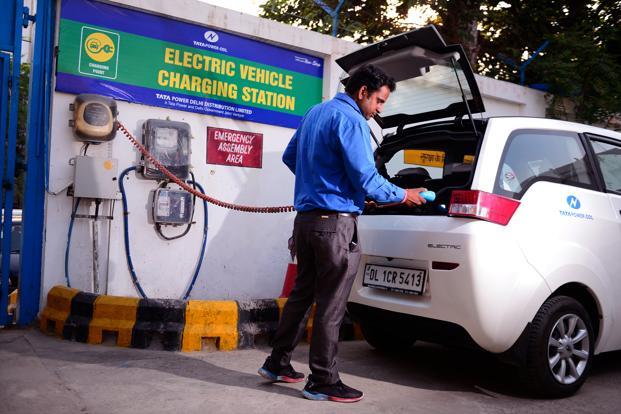
It is difficult to believe that the future is ‘electric’, but anything else. I mean transport. It will not be the government push or the will of the people that will mitigate the change, but ‘Pure Economics’.
The cost of running the electric vehicle – a car of a bike – will be extremely low compared to the fossil fired - petrol or diesel - ones. And free charging is a concept that will change the rule of the game and make the current set of vehicles a laggard.
There aren’t many players in the electric vehicles business. If fact not many have even attempted, it very seriously. But the scene will change after 2020, when the prices of energy will decline further, with consumer mindset evolving to the next level. What it means?
A majority of the customers (Indian- I mean) are extremely cost conscious, but a segment will be environmentally judicious, adapting to alternative technology more openly.
Coming to cost first, the total operational expenses of ‘Electric Vehicles’ will be less than half of petrol and diesel ones. For example, operating a i20 hatchback comes to around Rs 6/km while its electric peer is expected to run at lower than Rs 2/km. While the conventional cars will be struggling to confirm to new emission norms and other standards, including safety that will jack up costs, the electric ones will enjoy the benefits of emission free operations and higher tax incentives from the governments both in centre and states.
In this light the recent move of Rakesh Srivastava former director at Hyundai Motor India to Jindal Steel and Power or JSW Energy that is coming up as an exclusive electric-power car player is being seen as a prudent and futuristic decision by industry players.
Mr Srivastava was largely credited for the success of Creta compact SUV that stole the fizz out of its archrival Maruti S-Cross that literary failed to ignite the market even after massive product iterations and price changes.
Indian customers had shown keen interest and confidence in electric vehicles earlier. In fact, the market had swelled to over half a million electric motorbikes and up to 1000 cars-a-year in 2009-10, before lack of service and ideal technology upgrades killed it. To get into context, we sell less than 30,000 electric motorbikes and few hundred cars mainly the Mahindra E2O to private customers in the last closing fiscal year.
But the story has a twist. There is a large cache of electric three wheelers in the Indian market, unorganized and sourced entirely from China and their numbers is in excess of half-a-million. And its tribe is only growing, even without incentives, sales across metros are mushrooming.
All this ground actively shows that things will eventually change in the organized market too. Once segment leaders Maruti Suzuki and Hyundai Motor introduce their range of electric vehicles to the market the scene will witness a gradual and swift change. First their dealers which are the most important link to customers will drive this change and will be the most important influencer in the transition.
The second link in the evolution will be the service providers. They will help to tide over the biggest bottle neck of ‘range anxiety’ by providing charging options and swapping battery packs to consumers and set the ball rolling for the biggest disruption in the automotive market.
India retails more than 3-million cars and over 20-million two wheelers every year. A meagre 5% transition will disrupt the market enough to capsize the fortunes of conventional players.
Only smart companies which can control costs and deliver quality products can survive in the electric power game. This is where new entrants score and will eventually outsmart the traditional players with new concepts and deliverables to the customers.


